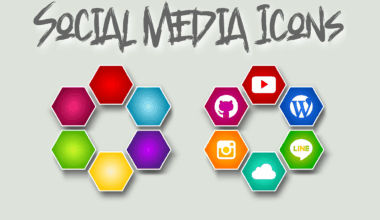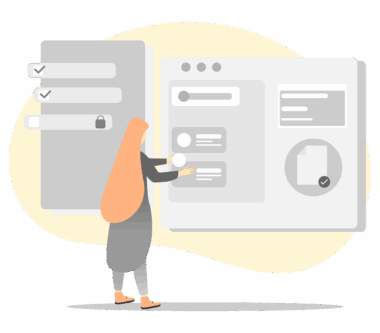Tracking Hashtag Performance with Custom Social Media Dashboards
Understanding hashtag performance on social media is crucial for brands today. With so many people engaging in digital conversations, a custom dashboard provides insights that can guide marketing strategies. By implementing tailored analytics, marketers can gain clarity on how their campaigns perform, who engages with their content, and the overall impact of specific hashtags. A well-designed dashboard showcases relevant metrics, including impressions, engagement rates, and audience demographics. These metrics can drive decisions about future campaigns and content strategies, ensuring companies remain relevant in a fast-paced environment. Using tools such as Google Analytics or dedicated social media platforms, you can connect your social media accounts. Such integrations allow real-time data collection and monitoring. The dashboard can visualize trends over time, identify high-performing hashtags, and show how different demographics interact with those tags. Having access to this data enables brands to optimize their content, targeting specific audiences more effectively. This precision in analysis translates to better engagement rates and, ultimately, higher customer loyalty. Thus, custom dashboards are invaluable tools for any brand looking to enhance its social media performance.
Effective hashtag tracking requires precise methodologies that can adapt to various platforms. Each social media platform has unique characteristics determining how hashtags are interpreted and interacted with by users. A custom dashboard caters specifically to these differences, allowing for tailored analytics suitable for Instagram, Twitter, or LinkedIn. This specificity ensures that your data monitoring aligns directly with the peculiarities of each platform. Additionally, incorporating social listening tools within the dashboard can elevate insights for hashtag performance. These tools monitor brand mentions and industry keywords, providing context to your hashtag usage. Brands can benchmark their performance against competitors or industry standards, getting a broader perspective of their effectiveness. Moreover, integrating feedback directly from users through surveys or polls adds depth to the quantitative data being collected. When you understand both the numbers and the sentiment, you can create richer narratives around marketing efforts. Performance tracking can improve by reviewing engagement spikes or declines after a specific post. This iterative analysis allows a continuous feedback loop, ensuring that your branding and social media efforts remain relevant and impactful to your audience.
Analyzing Engagement Metrics
Engagement metrics are fundamental indicators of how effective your hashtags are in capturing audience attention. These metrics include likes, shares, comments, and retweets, reflecting how users interact with your social media posts. A well-structured custom dashboard helps aggregate these metrics in a cohesive manner, allowing brands to quickly identify successful hashtags versus those lacking traction. By organizing these metrics over time, brands can pinpoint which hashtags generated the most engagement. This data informs future marketing strategies, enabling companies to use proven hashtags in new content. Furthermore, analyzing engagement shows the effectiveness of various content types, whether they are images, videos, or text updates. Combining this approach with demographic information about the users interacting with your hashtags gives brands the power to tailor their messaging further. Each interaction serves as a pivotal data point, helping to refine and enhance future content. Navigating the digital landscape is easier when engagement metrics are clearly displayed and understood, providing actionable insights. Custom dashboards facilitate this understanding by allowing users to visualize trends and patterns in their social media activities seamlessly.
Another vital aspect of tracking hashtag performance is measuring sentiment around the hashtags you are utilizing. Sentiment analysis looks at the emotions conveyed in user responses, helping you understand whether the conversations surrounding your hashtags are positive, neutral, or negative. Integrating sentiment analysis into your custom dashboard not only adds an extra layer of depth but also helps brands adjust their messaging accordingly. By identifying when a hashtag is associated with negative sentiment, businesses gain immediate insights, allowing them to address issues before they escalate further. This proactive approach can be crucial in maintaining a healthy brand reputation online. Additionally, sentiments can vary widely across different platforms, making it vital to analyze them distinctly according to where engagement occurs. Your dashboard can display sentiment trends alongside engagement metrics, providing a holistic view of how effective your campaigns are. Custom dashboards can be designed to highlight shifts in public perception around specific hashtags. This data aids brands in understanding not just what is popular, but the underlying feelings associated with their messaging and campaigns, which is incredibly valuable in today’s socially-aware climate.
Utilizing Real-Time Data
Real-time data is a game changer for businesses looking to maximize their impact on social media. By utilizing real-time data in a custom dashboard, brands can promptly respond to trends and make adjustments where necessary. Timeliness is of the essence in the digital world; being able to address audience queries or capitalize on trending hashtags ensures that your brand remains relevant. Real-time monitoring provides insights into how significant events or changes in the industry might affect hashtag performance. This type of agility allows brands to pivot quickly, ensuring they don’t miss opportunities for engagement. In addition to content adjustments, real-time data allows companies to monitor their competitors’ performances as well. Knowing what competitors are leveraging successful hashtags can offer valuable lessons about aligning your strategies effectively. A dashboard set to provide real-time analytics also fosters a culture of continuous improvement within the marketing team. Regular updates on hashtag performance motivate teams to remain engaged and responsive, forming a proactive rather than reactive approach with social media strategies. This agility is instrumental in maintaining visibility and preventing stagnation in an ever-evolving digital landscape.
Analytics on hashtags can become even more powerful when combined with audience segmentation. By segmenting your audience into distinct groups based on interests and demographics, you can gain insights into how different segments respond to various hashtags. A custom dashboard can visualize this data, revealing what type of content resonates best with each group. The resulting analysis can help tailor content to speak directly to your specific segments, enhancing engagement and reach. Understanding which demographic engages with particular hashtags allows businesses to refine their marketing approaches. For instance, younger demographics may prefer different hashtags than older audiences. This knowledge fosters an informed approach to social media strategy, making marketing efforts more targeted and efficient. Moreover, with audience insights, brands can craft personalized marketing messages that align with audience values and preferences. This personalization can lead to higher conversion rates and foster stronger connections with audiences. Ultimately, a custom dashboard providing audience segmentation facilitates focused insights, equipping firms to leverage hashtags effectively and achieve greater marketing objectives. This focus ensures that brands align closely with consumer expectations, leveraging their social media presence successfully.
Improving Future Campaigns
In the ever-evolving landscape of social media, analyzing hashtag performance using data-driven insights leads to informed decision-making. Custom social media dashboards grant brands insight into what worked in past campaigns, enabling them to replicate successes in future endeavors. Historical data reveals longitudinal patterns in user engagement, allowing teams to evaluate notable trends. Utilizing these trends in planning future campaigns ensures that brands remain ahead of their competition. Data on seasonal variations in hashtag effectiveness can inform the scheduling of campaigns, maximizing impact. Furthermore, integrating performance prediction models can strategize future content, utilizing insights collected from prior campaigns to forecast potential success rates. Brands can project which upcoming hashtags might resonate within their target demographics based on historical engagement metrics. This forward-thinking approach leads to continuous optimization and more impactful marketing campaigns. Additionally, businesses that regularly refine their content based on past performances foster a culture of analytical thinking. By considering previous efforts, brands not only sharpen their future strategies but also enhance overall marketing effectiveness, leading to higher ROI in their social media investments.
In conclusion, the value of custom social media dashboards extends beyond mere tracking of hashtags. They enable brands to gain deep insights into audience behaviors, engagement, sentiment, and changing trends. The ability to visualize data effectively informs marketing strategies, propelling businesses into vibrant conversations within their industries. As analytics evolve, brands that embrace advanced metrics will have a competitive edge, allowing them to connect with audiences more authentically. Social media strategies rooted in data-driven insights achieve remarkable results through continual improvements and adaptive learning. A robust tracking system should be a cornerstone of every modern marketing strategy, forming an essential foundation for growth and engagement. The future of marketing will increasingly rely on these analytics, guiding brands in their quest to connect with consumers meaningfully. Custom dashboards are not just tools; they are essential navigational aids for success in a crowded digital marketspace. As trends shift and audience expectations evolve, there has never been a more critical time for brands to invest in such solutions. Empowering marketing teams with the right data ensures they can adapt to ever-changing landscapes and consumer behaviors.





